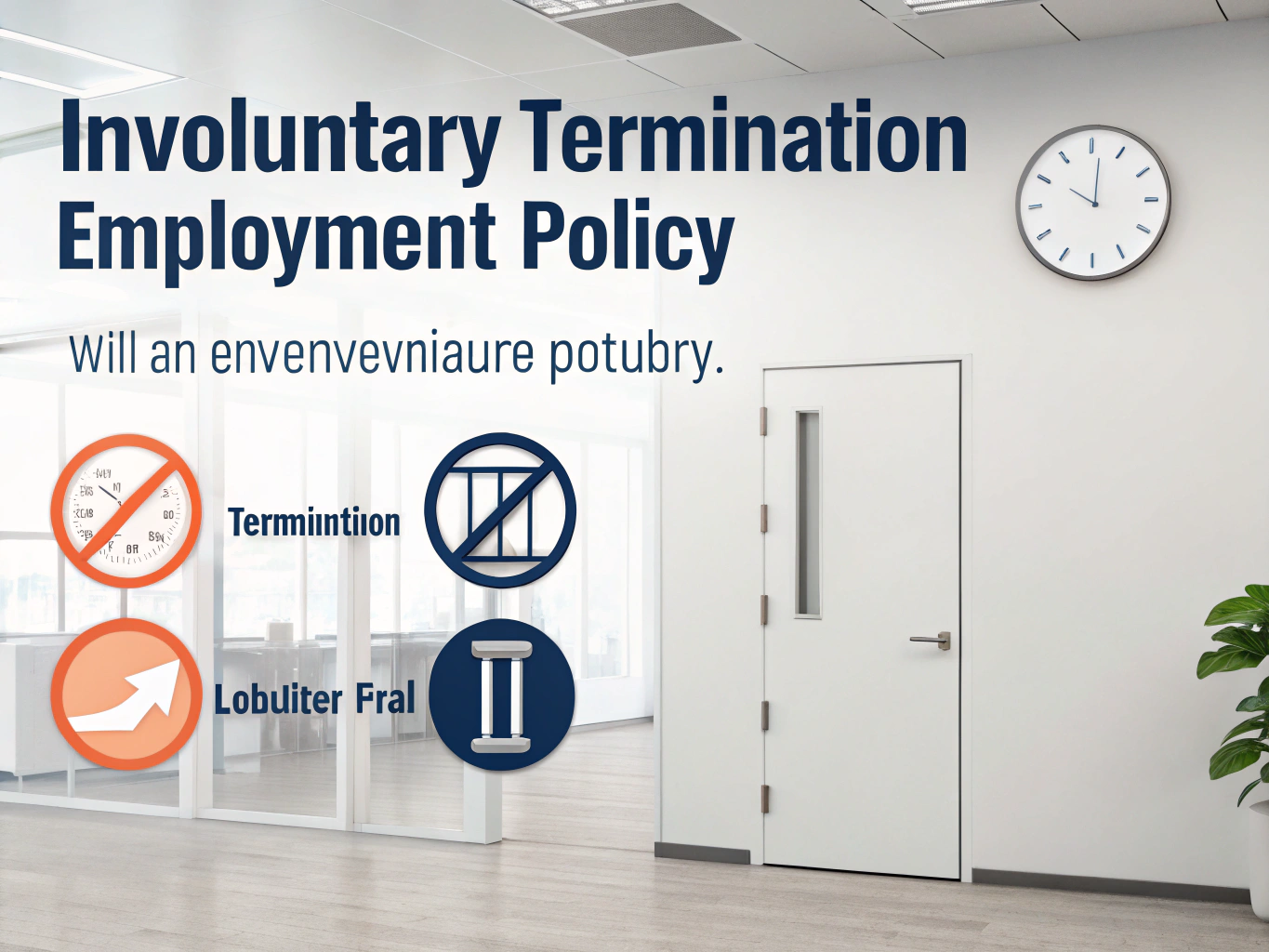Definition
An Involuntary Termination Employment Policy is a structured guideline that outlines how an organization will handle the termination of an employee’s contract against their will. This policy serves to ensure that the process is conducted fairly, professionally, and in compliance with legal standards, while also protecting the company’s reputation and the dignity of the employee involved.
Key Components
Crafting a comprehensive Involuntary Termination Employment Policy involves several essential elements that help guide managers and HR professionals through this sensitive process. Here are the key components to consider:
- Grounds for Termination: Clearly define the reasons that may lead to involuntary termination, such as poor performance, misconduct, or economic factors. For instance, if an employee consistently fails to meet sales targets despite multiple support attempts, this could justify a termination decision.
- Notification and Consultation: Prior to finalizing a termination, notify the employee about the concerns that have led to this decision. Providing an opportunity for the employee to respond fosters transparency and can help mitigate feelings of unfair treatment. For example, holding a meeting where the employee can discuss their perspective is critical.
- Documentation Requirements: Maintain thorough records of all interactions related to performance evaluations, disciplinary actions, and any warnings issued. This documentation is vital in demonstrating the rationale behind the termination if disputes arise later. Imagine a scenario where an employee claims wrongful termination; well-kept records can protect the company.
- Employee Assistance: Offer support to the terminated employee, such as access to career counseling or outplacement services. For instance, providing resume workshops can help the individual transition to new employment more smoothly.
- Communication Strategy: Develop a plan for communicating the termination to relevant parties, ensuring it is done respectfully and professionally. For example, informing team members in a way that maintains morale and clarity is crucial.
Importance in the Workplace
Having a well-defined Involuntary Termination Employment Policy is vital for fostering a respectful workplace culture. It helps to ensure that all employees are treated fairly and consistently, which can lead to higher morale and trust among remaining staff. For example, if a company handles a termination poorly, it can lead to anxiety among employees about their job security, potentially affecting productivity. Conversely, a transparent process can strengthen the overall work environment and show that the organization values professionalism.
Best Practices
Implementing an effective Involuntary Termination Employment Policy requires thoughtful practices that prioritize fairness and clarity. Here are some best practices to consider:
- Regular Training: Provide ongoing training for managers and HR personnel on the policy and effective termination procedures. This helps ensure that everyone is on the same page and equipped to handle these situations with sensitivity.
- Consistent Application: Apply the policy consistently across the organization to avoid perceptions of favoritism or bias. For example, if one employee is terminated for repeated tardiness, others with similar issues should face the same consequences.
- Prepare for Possible Reactions: Anticipate and plan for the emotional reactions of employees during the termination process. Having a support system in place, such as HR professionals who can assist immediately, can make a significant difference.
- Solicit Feedback: After a termination, gather feedback from involved parties to identify areas for improvement in the process. This can help enhance the policy over time and address any gaps.
- Legal Review: Regularly review the policy with legal counsel to ensure that it complies with current employment laws and regulations, helping to minimize legal risks.
Legal Considerations
It’s crucial to recognize that involuntary terminations can have legal implications. Ensuring compliance with federal, state, and local labor laws is essential to avoid potential lawsuits. For instance, familiarize yourself with laws regarding wrongful termination and discrimination to ensure that your policy doesn’t inadvertently violate any regulations. Additionally, documenting every step taken during the termination process is critical, as this can serve as evidence in case of legal disputes. Always consult legal advisors when drafting or revising your policy to stay compliant.
Conclusion
Understanding and implementing an Involuntary Termination Employment Policy is essential for any organization that values fairness and professionalism. By establishing clear guidelines and procedures, you can navigate the difficult process of termination with respect and dignity for all involved. Remember, it’s not just about the act of termination but also about how you manage the situation to maintain a positive workplace culture. By treating employees with care, even during tough decisions, you can foster a healthier, more trusting environment for everyone.




